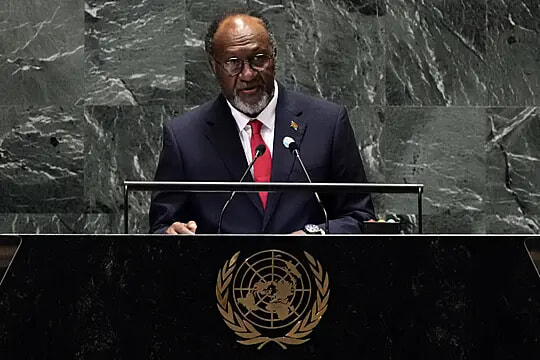
Tom Hanks Speaks Out For First Time About Daughter's Abuse
She's made some shocking statements about her childhood.
Published June 13, 2025
Advertisement
Advertisement
1. The Memoir That Shook Hollywood

In April 2025, E.A. Hanks released The 10: A Memoir of Family and the Open Road, a deeply personal and unsettling account of her childhood.
In it, she detailed years of alleged emotional and physical abuse at the hands of her late mother, Samantha Lewes, an actress and former wife of Tom Hanks.
E.A. described a Sacramento home filled with instability—where the fridge was often empty or full of expired food and where her mother isolated herself in bed reading the Bible.
She wrote about navigating a childhood marked by neglect, religious obsession, and erratic behavior she attributes to her mother’s undiagnosed mental illness.
According to her, those early years were dominated by confusion, deprivation, and occasional glimpses of love.
One night, the emotional abuse became physical, triggering a dramatic shift in custody.
E.A. moved to Los Angeles in the middle of seventh grade to live with her father and his new wife, Rita Wilson.
Her memoir paints this move as both an escape and a fracture—one that defined her adolescence and shaped her adult understanding of family.
Though she considered keeping the past hidden, she ultimately chose to confront it in public, believing that truth-telling held power.
The book explores not only her personal trauma but also broader questions of legacy, memory, and the meaning of forgiveness.
What started as a daughter’s reckoning has quickly become one of the most discussed and divisive memoirs of the year.
In it, she detailed years of alleged emotional and physical abuse at the hands of her late mother, Samantha Lewes, an actress and former wife of Tom Hanks.
E.A. described a Sacramento home filled with instability—where the fridge was often empty or full of expired food and where her mother isolated herself in bed reading the Bible.
She wrote about navigating a childhood marked by neglect, religious obsession, and erratic behavior she attributes to her mother’s undiagnosed mental illness.
According to her, those early years were dominated by confusion, deprivation, and occasional glimpses of love.
One night, the emotional abuse became physical, triggering a dramatic shift in custody.
E.A. moved to Los Angeles in the middle of seventh grade to live with her father and his new wife, Rita Wilson.
Her memoir paints this move as both an escape and a fracture—one that defined her adolescence and shaped her adult understanding of family.
Though she considered keeping the past hidden, she ultimately chose to confront it in public, believing that truth-telling held power.
The book explores not only her personal trauma but also broader questions of legacy, memory, and the meaning of forgiveness.
What started as a daughter’s reckoning has quickly become one of the most discussed and divisive memoirs of the year.
Advertisement
2. A Father Caught in the Middle

Tom Hanks, one of America’s most beloved actors, responded to his daughter’s memoir with a statement that struck a careful, measured tone.
While expressing his unwavering love for E.A., he acknowledged the pain she described without confirming or denying specific events.
“I support my daughter’s right to tell her story,” Hanks said in a written comment provided to People magazine shortly after the memoir’s release.
He added, “Families are complex. Ours has had joy and sorrow, and like all families, we’re still learning how to talk about both.”
Sources close to Hanks say he was aware of the memoir before publication and offered no attempt to stop it.
However, those same sources indicate the book stirred deep emotion and reflection for the 67-year-old actor.
Friends describe him as “heartbroken but not angry,” caught between the truth of his daughter’s pain and the memory of a woman he once loved.
Hanks had long avoided discussing his first marriage in public, often deflecting personal questions with humor or humility.
Now, with E.A.’s claims in the public domain, he faces scrutiny not only as a father but as a figure of moral authority.
The public is watching to see whether he’ll offer further response—or allow silence to speak for him.
For now, his initial reaction is one of quiet support, marked more by compassion than confrontation.
While expressing his unwavering love for E.A., he acknowledged the pain she described without confirming or denying specific events.
“I support my daughter’s right to tell her story,” Hanks said in a written comment provided to People magazine shortly after the memoir’s release.
He added, “Families are complex. Ours has had joy and sorrow, and like all families, we’re still learning how to talk about both.”
Sources close to Hanks say he was aware of the memoir before publication and offered no attempt to stop it.
However, those same sources indicate the book stirred deep emotion and reflection for the 67-year-old actor.
Friends describe him as “heartbroken but not angry,” caught between the truth of his daughter’s pain and the memory of a woman he once loved.
Hanks had long avoided discussing his first marriage in public, often deflecting personal questions with humor or humility.
Now, with E.A.’s claims in the public domain, he faces scrutiny not only as a father but as a figure of moral authority.
The public is watching to see whether he’ll offer further response—or allow silence to speak for him.
For now, his initial reaction is one of quiet support, marked more by compassion than confrontation.
Advertisement
3. Who Was Samantha Lewes?

Samantha Lewes, born Susan Jane Dillingham, was Tom Hanks’ college sweetheart and the mother of his two oldest children, Colin and Elizabeth Ann.
She met Hanks at California State University, Sacramento, where both were drama students navigating the chaos of early adulthood.
The couple married young in 1978 and struggled through years of financial hardship while Hanks pursued his acting career.
Though Lewes had some minor acting roles, including appearances on Bosom Buddies and Mr. Success, she largely remained out of the spotlight.
After their 1987 divorce, she retreated further into privacy, rarely speaking to the media or appearing at public events.
According to E.A.’s memoir, Lewes' post-divorce years were marked by deep isolation and increasing religious fervor.
She reportedly read the Bible obsessively, refused outside help, and exhibited behavior that E.A. describes as paranoid and punitive.
Lewes died in 2002 from bone cancer at the age of 49, with Hanks covering her medical expenses during her final illness.
Despite their divorce, Hanks and Lewes reportedly maintained an amicable relationship for the sake of their children.
Still, little was publicly known about her personal struggles until E.A. chose to reveal them in vivid, often painful detail.
Her portrait in the memoir is not just one of cruelty, but of a woman deeply wounded and tragically untreated.
She met Hanks at California State University, Sacramento, where both were drama students navigating the chaos of early adulthood.
The couple married young in 1978 and struggled through years of financial hardship while Hanks pursued his acting career.
Though Lewes had some minor acting roles, including appearances on Bosom Buddies and Mr. Success, she largely remained out of the spotlight.
After their 1987 divorce, she retreated further into privacy, rarely speaking to the media or appearing at public events.
According to E.A.’s memoir, Lewes' post-divorce years were marked by deep isolation and increasing religious fervor.
She reportedly read the Bible obsessively, refused outside help, and exhibited behavior that E.A. describes as paranoid and punitive.
Lewes died in 2002 from bone cancer at the age of 49, with Hanks covering her medical expenses during her final illness.
Despite their divorce, Hanks and Lewes reportedly maintained an amicable relationship for the sake of their children.
Still, little was publicly known about her personal struggles until E.A. chose to reveal them in vivid, often painful detail.
Her portrait in the memoir is not just one of cruelty, but of a woman deeply wounded and tragically untreated.
Advertisement
4. E.A. Hanks Finds Her Voice

Elizabeth Ann “E.A.” Hanks has spent much of her adult life walking a tightrope between legacy and individuality.
Though the daughter of Hollywood royalty, she carved out her own path as a writer, editor, and journalist, far from the red carpets of her childhood.
She has worked at publications like Vanity Fair and The Huffington Post, gaining respect for her incisive prose and sharp cultural commentary.
Still, the specter of her famous last name loomed over her career, often reducing her to “Tom Hanks’ daughter” in public perception.
In writing The 10, she sought to reclaim her narrative, not just from celebrity gossip but from the silence that had defined her family history.
The title refers to Highway 10, the cross-country route she traveled as a child and later revisited as an adult seeking closure.
Her memoir blends vivid recollections of that road trip with raw, personal accounts of abuse and self-discovery.
Critics have praised the book for its literary ambition, emotional honesty, and refusal to sanitize the past for comfort.
Some readers, however, have criticized its unflinching portrayal of a dead parent, accusing Hanks of betrayal or opportunism.
E.A. has responded to the backlash by reiterating her goal: to speak truth, not to destroy legacies but to illuminate hidden wounds.
In doing so, she’s positioned herself not only as a survivor, but as an author of courage and depth, forging identity through painful clarity.
Though the daughter of Hollywood royalty, she carved out her own path as a writer, editor, and journalist, far from the red carpets of her childhood.
She has worked at publications like Vanity Fair and The Huffington Post, gaining respect for her incisive prose and sharp cultural commentary.
Still, the specter of her famous last name loomed over her career, often reducing her to “Tom Hanks’ daughter” in public perception.
In writing The 10, she sought to reclaim her narrative, not just from celebrity gossip but from the silence that had defined her family history.
The title refers to Highway 10, the cross-country route she traveled as a child and later revisited as an adult seeking closure.
Her memoir blends vivid recollections of that road trip with raw, personal accounts of abuse and self-discovery.
Critics have praised the book for its literary ambition, emotional honesty, and refusal to sanitize the past for comfort.
Some readers, however, have criticized its unflinching portrayal of a dead parent, accusing Hanks of betrayal or opportunism.
E.A. has responded to the backlash by reiterating her goal: to speak truth, not to destroy legacies but to illuminate hidden wounds.
In doing so, she’s positioned herself not only as a survivor, but as an author of courage and depth, forging identity through painful clarity.
Advertisement
5. Family and Legacy

The release of The 10 has reportedly caused tension within the Hanks family, sparking private conversations now echoed in public speculation.
While Tom Hanks offered a neutral statement of support, insiders say other family members were blindsided by the book’s revelations.
Rita Wilson, Hanks’ wife since 1988, has not commented publicly but is said to be privately distressed by the memoir’s impact.
Colin Hanks, E.A.’s older brother and a successful actor in his own right, has also remained silent—though friends describe him as “deeply conflicted.”
Some relatives reportedly believe E.A. should have handled the matter privately, fearing the book invites scrutiny that could stain the family’s image.
Others within the family circle, however, have quietly expressed admiration for her honesty and bravery.
What’s clear is that the memoir has shattered long-held narratives of harmony and healing within the Hanks household.
The family, once regarded as an ideal Hollywood unit, now appears more fractured—united by blood but tested by truth.
Public reactions have mirrored this divide, with some fans grappling with how to reconcile their image of “America’s Dad” with this complex backstory.
The fallout has reignited questions about celebrity families, privacy, and the burden of inherited public expectation.
In choosing to speak out, E.A. Hanks has forced a reckoning not only within her own family, but among audiences who once idealized them.
While Tom Hanks offered a neutral statement of support, insiders say other family members were blindsided by the book’s revelations.
Rita Wilson, Hanks’ wife since 1988, has not commented publicly but is said to be privately distressed by the memoir’s impact.
Colin Hanks, E.A.’s older brother and a successful actor in his own right, has also remained silent—though friends describe him as “deeply conflicted.”
Some relatives reportedly believe E.A. should have handled the matter privately, fearing the book invites scrutiny that could stain the family’s image.
Others within the family circle, however, have quietly expressed admiration for her honesty and bravery.
What’s clear is that the memoir has shattered long-held narratives of harmony and healing within the Hanks household.
The family, once regarded as an ideal Hollywood unit, now appears more fractured—united by blood but tested by truth.
Public reactions have mirrored this divide, with some fans grappling with how to reconcile their image of “America’s Dad” with this complex backstory.
The fallout has reignited questions about celebrity families, privacy, and the burden of inherited public expectation.
In choosing to speak out, E.A. Hanks has forced a reckoning not only within her own family, but among audiences who once idealized them.
Advertisement
6. Hollywood Reacts

The entertainment industry has responded cautiously to The 10, with many celebrities choosing silence over public commentary.
Tom Hanks remains a towering figure in Hollywood, and few are eager to weigh in on a controversy that touches such a revered name.
Privately, however, reactions have ranged from quiet sympathy for E.A. Hanks to disbelief at the memoir’s harrowing details.
Some insiders describe industry discomfort with the allegations, noting a long-standing reluctance in Hollywood to confront familial trauma.
Others point to a generational divide, with younger artists more likely to view E.A.'s revelations as brave and necessary.
Several high-profile authors and activists have voiced public support for her, applauding her courage in telling a story many would have buried.
Feminist commentators have highlighted the memoir’s relevance in a cultural moment increasingly attentive to cycles of abuse and generational pain.
Still, fear of backlash has kept major studios, actors, and directors largely out of the conversation.
There are whispers that projects involving Tom Hanks have faced renewed scrutiny behind closed doors, though no cancellations or delays have been announced.
For now, Hollywood remains in a state of uneasy watchfulness—balancing loyalty, morality, and the unpredictable power of memoir.
What happens next may depend less on red carpet reactions and more on how the public absorbs the story’s implications.
Tom Hanks remains a towering figure in Hollywood, and few are eager to weigh in on a controversy that touches such a revered name.
Privately, however, reactions have ranged from quiet sympathy for E.A. Hanks to disbelief at the memoir’s harrowing details.
Some insiders describe industry discomfort with the allegations, noting a long-standing reluctance in Hollywood to confront familial trauma.
Others point to a generational divide, with younger artists more likely to view E.A.'s revelations as brave and necessary.
Several high-profile authors and activists have voiced public support for her, applauding her courage in telling a story many would have buried.
Feminist commentators have highlighted the memoir’s relevance in a cultural moment increasingly attentive to cycles of abuse and generational pain.
Still, fear of backlash has kept major studios, actors, and directors largely out of the conversation.
There are whispers that projects involving Tom Hanks have faced renewed scrutiny behind closed doors, though no cancellations or delays have been announced.
For now, Hollywood remains in a state of uneasy watchfulness—balancing loyalty, morality, and the unpredictable power of memoir.
What happens next may depend less on red carpet reactions and more on how the public absorbs the story’s implications.
Advertisement
7. Tom Hanks Responds

Tom Hanks’ response to his daughter’s memoir has been characteristically measured, reflecting a blend of emotional restraint and calculated poise.
In a brief public statement issued through his publicist, he acknowledged E.A.’s “right to tell her story” while offering no direct comment on the abuse allegations.
He expressed love for all his children and emphasized his belief in “healing through compassion and understanding.”
Those close to Hanks describe him as “deeply shaken” but determined not to escalate the situation with a defensive or emotional rebuttal.
Privately, sources say Hanks is wrestling with feelings of guilt, confusion, and helplessness—compounded by the fact that Lewes is no longer alive to respond.
He has reportedly declined all interview requests related to the book and has asked friends and colleagues to avoid engaging with the topic publicly.
Industry peers have interpreted his silence as both an attempt to protect his daughter and a strategy to contain reputational damage.
Some believe Hanks is biding his time, hoping the storm will pass without further confrontation or disclosures.
Others argue that his silence speaks volumes, raising questions about what he knew, when he knew it, and how much responsibility he bears for the household E.A. describes.
In the absence of clarity, speculation continues to swirl, complicating Hanks’ carefully curated public image as a symbol of decency and stability.
As the story unfolds, even his most loyal fans are being forced to see him not as a character—but as a father, flawed and human.
In a brief public statement issued through his publicist, he acknowledged E.A.’s “right to tell her story” while offering no direct comment on the abuse allegations.
He expressed love for all his children and emphasized his belief in “healing through compassion and understanding.”
Those close to Hanks describe him as “deeply shaken” but determined not to escalate the situation with a defensive or emotional rebuttal.
Privately, sources say Hanks is wrestling with feelings of guilt, confusion, and helplessness—compounded by the fact that Lewes is no longer alive to respond.
He has reportedly declined all interview requests related to the book and has asked friends and colleagues to avoid engaging with the topic publicly.
Some believe Hanks is biding his time, hoping the storm will pass without further confrontation or disclosures.
Others argue that his silence speaks volumes, raising questions about what he knew, when he knew it, and how much responsibility he bears for the household E.A. describes.
In the absence of clarity, speculation continues to swirl, complicating Hanks’ carefully curated public image as a symbol of decency and stability.
As the story unfolds, even his most loyal fans are being forced to see him not as a character—but as a father, flawed and human.
Advertisement
8. The Ghost of Samantha Lewes

Samantha Lewes, Tom Hanks’ first wife and the mother of his two oldest children, passed away in 2002 after a battle with bone cancer.
A former actress, she largely stepped away from the spotlight following her divorce from Hanks in 1987, leaving behind a legacy shaped more by silence than fame.
In The 10, E.A. Hanks paints a portrait of her mother that is haunting, complex, and deeply troubling.
She describes Lewes as volatile, emotionally unstable, and physically abusive—capable of warmth one moment and cruelty the next.
The memoir does not reduce Lewes to a caricature but rather grapples with the contradictions of a woman shaped by her own unhealed wounds.
There are glimpses of affection, creativity, and vulnerability, buried beneath years of unresolved trauma and rage.
Readers are left with a conflicted image: a woman both victim and perpetrator, navigating the impossible pressures of single motherhood and emotional collapse.
E.A. Hanks makes clear that her aim is not to vilify her mother, but to tell the truth about what happened behind closed doors.
The challenge lies in confronting a figure who cannot defend herself, leaving her legacy to be reinterpreted through her daughter’s grief and reflection.
In doing so, the book forces readers to reckon with the uncomfortable truth that abuse can exist even in seemingly ordinary households.
And that sometimes, love and harm come from the same source—an idea that lingers long after the final page.
A former actress, she largely stepped away from the spotlight following her divorce from Hanks in 1987, leaving behind a legacy shaped more by silence than fame.
In The 10, E.A. Hanks paints a portrait of her mother that is haunting, complex, and deeply troubling.
She describes Lewes as volatile, emotionally unstable, and physically abusive—capable of warmth one moment and cruelty the next.
The memoir does not reduce Lewes to a caricature but rather grapples with the contradictions of a woman shaped by her own unhealed wounds.
There are glimpses of affection, creativity, and vulnerability, buried beneath years of unresolved trauma and rage.
Readers are left with a conflicted image: a woman both victim and perpetrator, navigating the impossible pressures of single motherhood and emotional collapse.
E.A. Hanks makes clear that her aim is not to vilify her mother, but to tell the truth about what happened behind closed doors.
The challenge lies in confronting a figure who cannot defend herself, leaving her legacy to be reinterpreted through her daughter’s grief and reflection.
In doing so, the book forces readers to reckon with the uncomfortable truth that abuse can exist even in seemingly ordinary households.
And that sometimes, love and harm come from the same source—an idea that lingers long after the final page.
Advertisement
9. Rewriting the Hanks Legacy

For decades, the Hanks family has represented Hollywood’s ideal of grounded, wholesome success—a rare dynasty seemingly immune to scandal.
Tom Hanks, with his everyman charm and consistent public grace, became a symbol of stability in an industry defined by chaos.
His children, while less in the spotlight, were often described as well-adjusted and thoughtful, further reinforcing the family’s golden image.
The 10 disrupts that narrative, forcing a reassessment of what the Hanks name truly represents behind the curtain of fame.
E.A. Hanks doesn’t indict her father outright but challenges the myth of benign neglect that can enable generational trauma.
Her memoir invites readers to question how public adoration may mask private dysfunction—and how silence serves the powerful.
It also suggests that legacies are not built solely on box office numbers or public affection, but on the emotional landscapes they leave behind.
For Tom Hanks, the reckoning may come not through scandal but through the slow erosion of an untouchable image.
As E.A.’s book circulates in book clubs, news segments, and online forums, the Hanks family becomes less a brand and more a battleground of truth and perception.
The public is left to reconcile its love for a cinematic icon with a deeper, more complicated understanding of his family’s reality.
In the end, The 10 isn’t just a memoir—it’s a challenge to the very concept of legacy itself.
Tom Hanks, with his everyman charm and consistent public grace, became a symbol of stability in an industry defined by chaos.
His children, while less in the spotlight, were often described as well-adjusted and thoughtful, further reinforcing the family’s golden image.
The 10 disrupts that narrative, forcing a reassessment of what the Hanks name truly represents behind the curtain of fame.
E.A. Hanks doesn’t indict her father outright but challenges the myth of benign neglect that can enable generational trauma.
Her memoir invites readers to question how public adoration may mask private dysfunction—and how silence serves the powerful.
It also suggests that legacies are not built solely on box office numbers or public affection, but on the emotional landscapes they leave behind.
For Tom Hanks, the reckoning may come not through scandal but through the slow erosion of an untouchable image.
As E.A.’s book circulates in book clubs, news segments, and online forums, the Hanks family becomes less a brand and more a battleground of truth and perception.
The public is left to reconcile its love for a cinematic icon with a deeper, more complicated understanding of his family’s reality.
In the end, The 10 isn’t just a memoir—it’s a challenge to the very concept of legacy itself.
Advertisement
10. The Reckoning Ahead

As The 10 gains momentum, its cultural and emotional aftershocks continue to ripple far beyond the Hanks family.
Readers are not just consuming a personal story—they’re participating in a larger conversation about abuse, accountability, and generational silence.The book forces audiences to wrestle with uncomfortable truths about how pain is inherited, hidden, and—sometimes—survived.
For E.A. Hanks, the memoir is both an act of liberation and a plea for understanding, a way to claim authorship over a childhood shaped by fear and contradiction.
Tom Hanks, revered for decades as a beacon of empathy, now faces scrutiny not for what he did—but for what he may have ignored.
Hollywood remains largely muted, unsure how to engage with a narrative that blends celebrity, trauma, and the imperfection of parenthood.
Critics continue to debate the ethics of posthumous allegations and the blurred line between healing and accusation.
But one thing is certain: The 10 has upended the familiar Hollywood memoir, offering not redemption arcs or sanitized nostalgia, but brutal, unflinching truth.
Its success suggests a shifting appetite among readers—away from idol worship, and toward authenticity, even when it hurts.
Whether E.A. Hanks’ book prompts meaningful change or becomes another entry in the annals of tabloid fodder remains to be seen.
But in telling her story, she has cracked open a facade—and what spills out may be impossible to ignore.
For E.A. Hanks, the memoir is both an act of liberation and a plea for understanding, a way to claim authorship over a childhood shaped by fear and contradiction.
Tom Hanks, revered for decades as a beacon of empathy, now faces scrutiny not for what he did—but for what he may have ignored.
Hollywood remains largely muted, unsure how to engage with a narrative that blends celebrity, trauma, and the imperfection of parenthood.
Critics continue to debate the ethics of posthumous allegations and the blurred line between healing and accusation.
But one thing is certain: The 10 has upended the familiar Hollywood memoir, offering not redemption arcs or sanitized nostalgia, but brutal, unflinching truth.
Its success suggests a shifting appetite among readers—away from idol worship, and toward authenticity, even when it hurts.
Whether E.A. Hanks’ book prompts meaningful change or becomes another entry in the annals of tabloid fodder remains to be seen.
But in telling her story, she has cracked open a facade—and what spills out may be impossible to ignore.
Advertisement
Advertisement
You May Also Like






